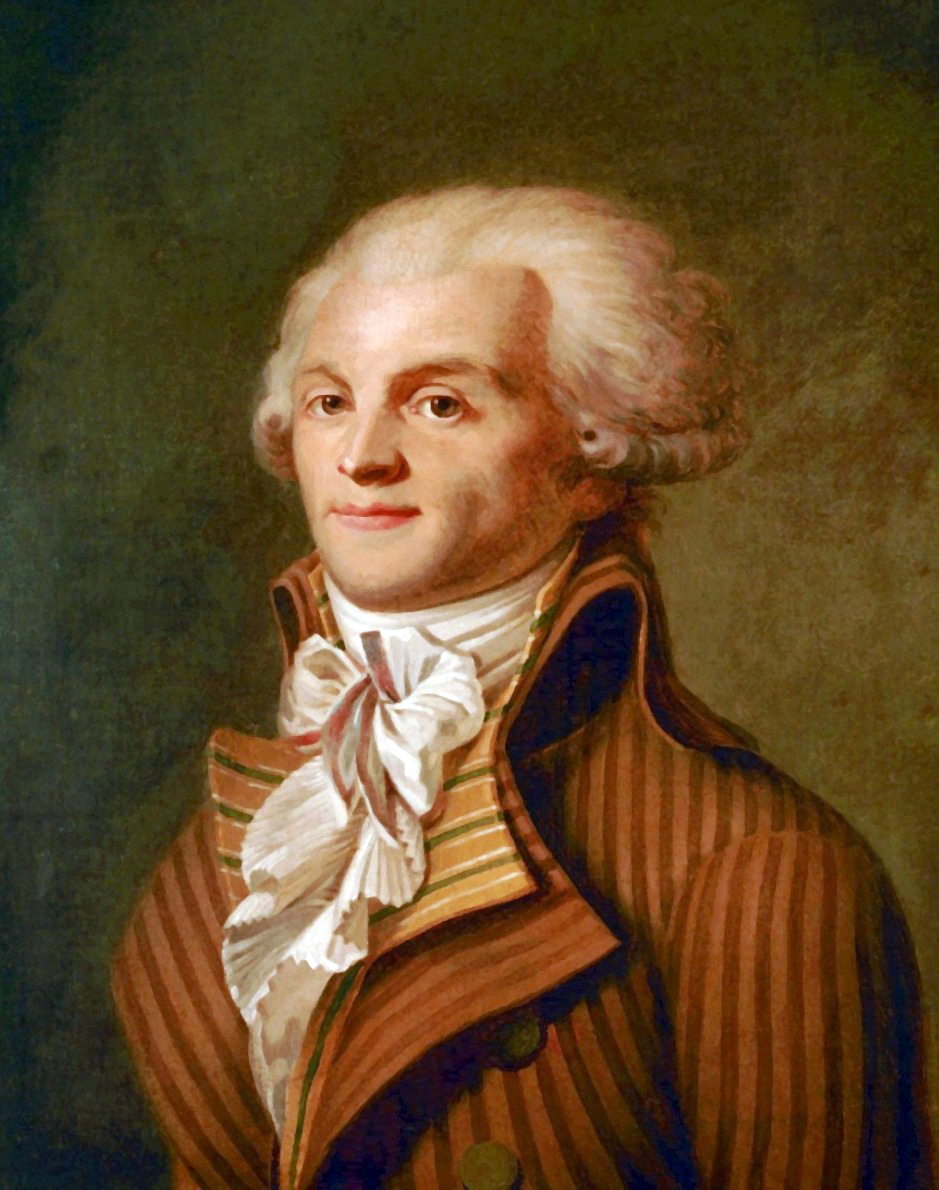Maximilien Robespierre nejznámější citáty
„Teror není nic jiného než okamžitá, přísná a nepřizpůsobivá spravedlnost.“
Zdroj: [Eliášová, Dominika, 5 krvavých střepin Velké francouzské revoluce, History revue, 2009, únor, 2, 25]
Chybí zdroj
Maximilien Robespierre: Citáty o spravedlnosti
Maximilien Robespierre: Citáty o svobodě
„Svobody nelze dosáhnout, pokud zločinci nepřijdou o hlavu.“
po vraždě Marata
Zdroj: [Bauer, Jan, Nejkrvavější vládci světa, 21. století, 2004, leden, 1]
Maximilien Robespierre citáty a výroky
Zdroj: Převzato z Alberto Manguel, Čtení obrazů
Maximilien Robespierre: Citáty anglicky
On the Silver Mark (1791)
On the Silver Mark (1791)
Speech of Thermidor Year II (26 July 1794)
"In Defense of the Committee of Public Safety and Against Briez" (25 September 1793)
"Declaration of the Rights of Man and of the Citizen, proposed by Maximilien Robespierre" (24 April, 1793)
Originál: (fr) XXIX. Dans tout état libre, la loi doit surtout défendre la liberté publique et individuelle contre l'autorité de ceux qui la gouvernent. Tout institution qui ne suppose pas le peuple bon et le magistrat corruptible est vicieuse.
On Subsistence, (2 December 1792)
On Subsistence, (2 December 1792)
On Subsistence, (2 December 1792)
Citoyens, vouliez-vous une révolution sans révolution?
"Answer to Louvet's Accusation" (5 November 1792) Réponse à J.- B. Louvet http://www.royet.org/nea1789-1794/archives/discours/robespierre_reponse_louvet.htm, a speech to the National Convention (5 November 1792)
"On the Condition of Free Men of Colour" (31 May 1791)
"On Voting Rights for Actors and Jews" (21 December 1789)
"On Voting Rights for Actors and Jews" (21 December 1789)
“You will follow us soon! Your house will be beaten down and salt sown in the place where it stood!”
Exclamation of Georges Danton passing Robespierre's house on the way to the guillotine, quoted in the memoirs of Paul vicomte de Barras
About Robespierre
“The People is always worth more than individuals.”
As quoted in Portrayals of Revolution, Images, Debates, and Patterns of Thought on the French Revolution, p. 27, by Noel Parker, Southern Illinois University Press
Zdroj: Principles to Form the Basis of the Administration of the Republic (February 1794)
Originál: (fr) XXXIII. Les délits des mandataires du peuple doivent être sévèrement et facilement punis. Nul n'a le droit de se prétendre plus inviolable que les autres citoyens.
Zdroj: "Declaration of the Rights of Man and of the Citizen, proposed by Maximilien Robespierre" (24 April, 1793)
"Declaration of the Rights of Man and of the Citizen, proposed by Maximilien Robespierre" (24 April, 1793)
Originál: (fr) XXXV. Les hommes de tous les pays sont frères, et les différents peuples doivent s'entraider selon leur pouvoir comme les citoyens du même état.
“Any institution which does not suppose the people good, and the magistrate corruptible, is evil.”
From article 19 of the Déclaration des droits de l'homme et du citoyen http://saintjust.free.fr/DDHC93.htm (21 April 1793)
Originál: (fr) Tout institution qui ne suppose pas le peuple bon et le magistrat corruptible est vicieuse.
“The secret of liberty is to enlighten men, as that of tyranny is to keep them in ignorance.”
As quoted in Human Rights and Freedoms in the USSR (1981) by Fedor Eliseevich Medvedev and Gennadiĭ Ivanovich Kulikov, p. 221
Originál: Le secret de la liberté est d'éclairer les hommes, comme celui de la tyrannie est de les retenir dans l'ignorance
Varianta: The secret of freedom lies in educating people, whereas the secret of tyranny is in keeping them ignorant.
Zdroj: Public statement (November 1792), quoted in Oeuvres de Maximilien Robespierre (1840), Volume 2, p. 253 http://books.google.com/books?id=iSMVAAAAQAAJ
Misc Quotes
Originál: (fr) Citoyens, vouliez-vous une révolution sans révolution?
Quoting Jean-Jacques Rousseau
Misc Quotes
Last Speech to the National Convention (26 July 1794)
Last Speech to the National Convention (26 July 1794)
Last Speech to the National Convention (26 July 1794)
